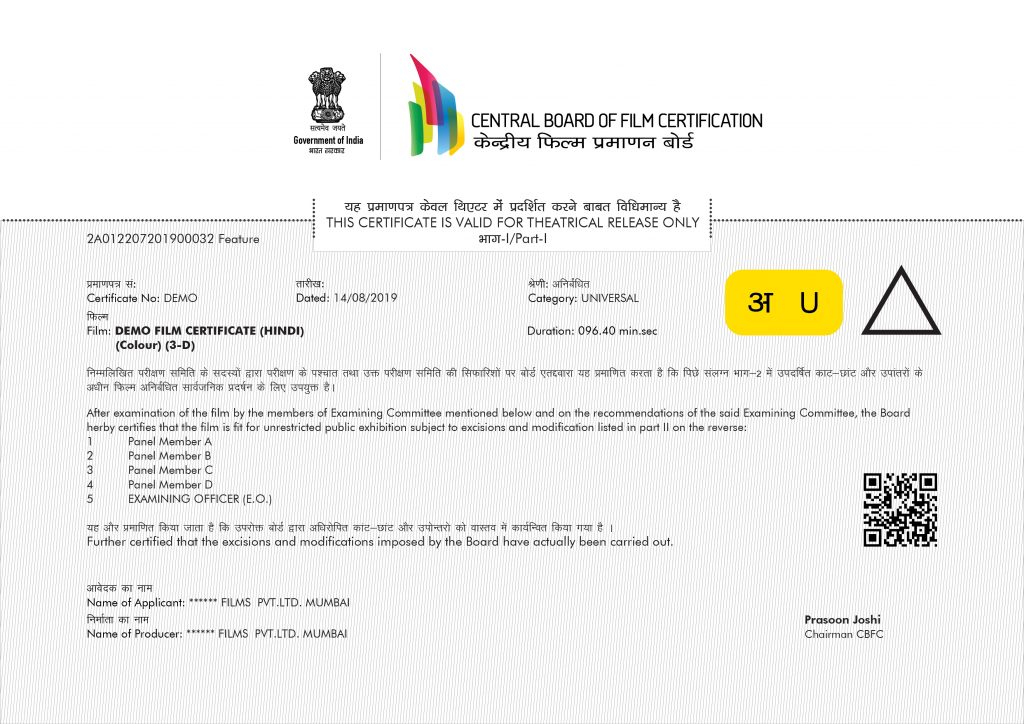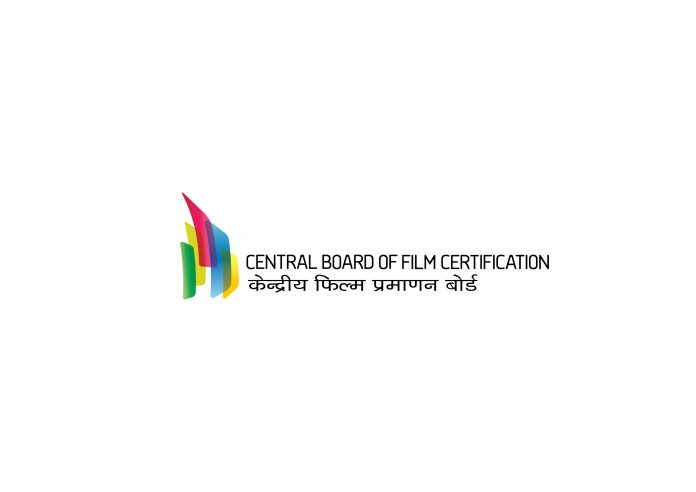The Central Board of Film Certification has a new logo that’s colourful and reflects the contemporary digital world and “leverages the ease that technology has brought in” the work process. The logo was unveiled by Union Information & Broadcasting minister Prakash Javadekar at a film industry meet with the CBFC, organised by CBFC chairman Prasoon Joshi on 31st August at Hotel Trident. The minister also unveiled the new look of the certificate issued by the CBFC to films, which is required for a film to be exhibited in cinemas. The new certificate highlights the category for which the film is certified. The ‘U’, ‘UA’ or ‘A’ is placed on the mid-top right-hand corner, as being currently done but the same will stand out in the new-look certificate as it is in yellow colour. In fact, besides the multi-coloured logo and the certificate category mentioned in yellow, everything else is in black ink. At present, the entire certificate is in black ink, including the CBFC logo and the category. Explained Joshi, “I thought, the category of the film’s certificate should be visible immediately — and that was possible if it was made to stand out in colour.” He added, “The design change is not cosmetic, it is extremely functional and underlines CBFC’s positive value-added approach.”

Not many may be aware that Prasoon Joshi brought about many changes in the functioning of the government body which clears films, when he was appointed by the government around two years back to head the Board. “I didn’t know what I was getting into when I took up this job,” revealed Prasoon whose two-year term will soon come to an end. “Since I have been used to running an organisation,” explained Joshi, “I knew how to go about streamlining the office of the CBFC. I got new people recruited in the CBFC, I conducted training for the staff, I undertook several trips to Delhi to get things passed and cleared, all so that the office would function without a hitch and cater to the film industry in a smooth manner.” Quite easily, certifying Padmaavat was the most difficult task for the CBFC chairman because of the opposition of a section of people who wanted a ban on the film. “I underwent a lot of stress those days but I was clear about one thing when I saw the film — that there was no distortion or intention to hurt anyone and so the film needed to be cleared. When I asked Sanjay Leela Bhansali if it was absolutely true to history, he said that cinematic liberties had been taken but it was true to the poem. That’s when I told him to change the title of the film to go with the poem and that’s how it became Padmaavat (based on the poem of the same name) instead of Padmavati.”
Prasoon Joshi also revealed that he has streamlined the working of the CBFC so well that he doesn’t need to get into the day-to-day work. “But I’m there whenever there is a problem,” he adds. Joshi thanked his staff for working tirelessly for making the certification process smooth and hassle-free for the producers. The chairman also said in his opening address at the meet that he believed more in dialogue and discussion with producers than confrontation and controversy. He thanked his Board members for taking this philosophy forward. The Board consists of Gautami Tadimalla, Vani Tripathi Tikoo, T.S. Nagabharana, Narendra Kohli, Mihir Buta, Waman Kendre, Vidya Balan, Jeevitha Rajasekhar, Vivek Agnihotri, Neil Herbert Nongkynrih, Ramesh Patange and Naresh Chander Lal.
The I & B minister said that changes in the CBFC guidelines would be made after considering an entire range of suggestions including those of the Shyam Benegal Committee appointed by the government specially to recommend changes. CBFC Bombay regional officer Tushar Karmarkar presented the new approach of the CBFC for making the film certification process smooth and transparent.





























